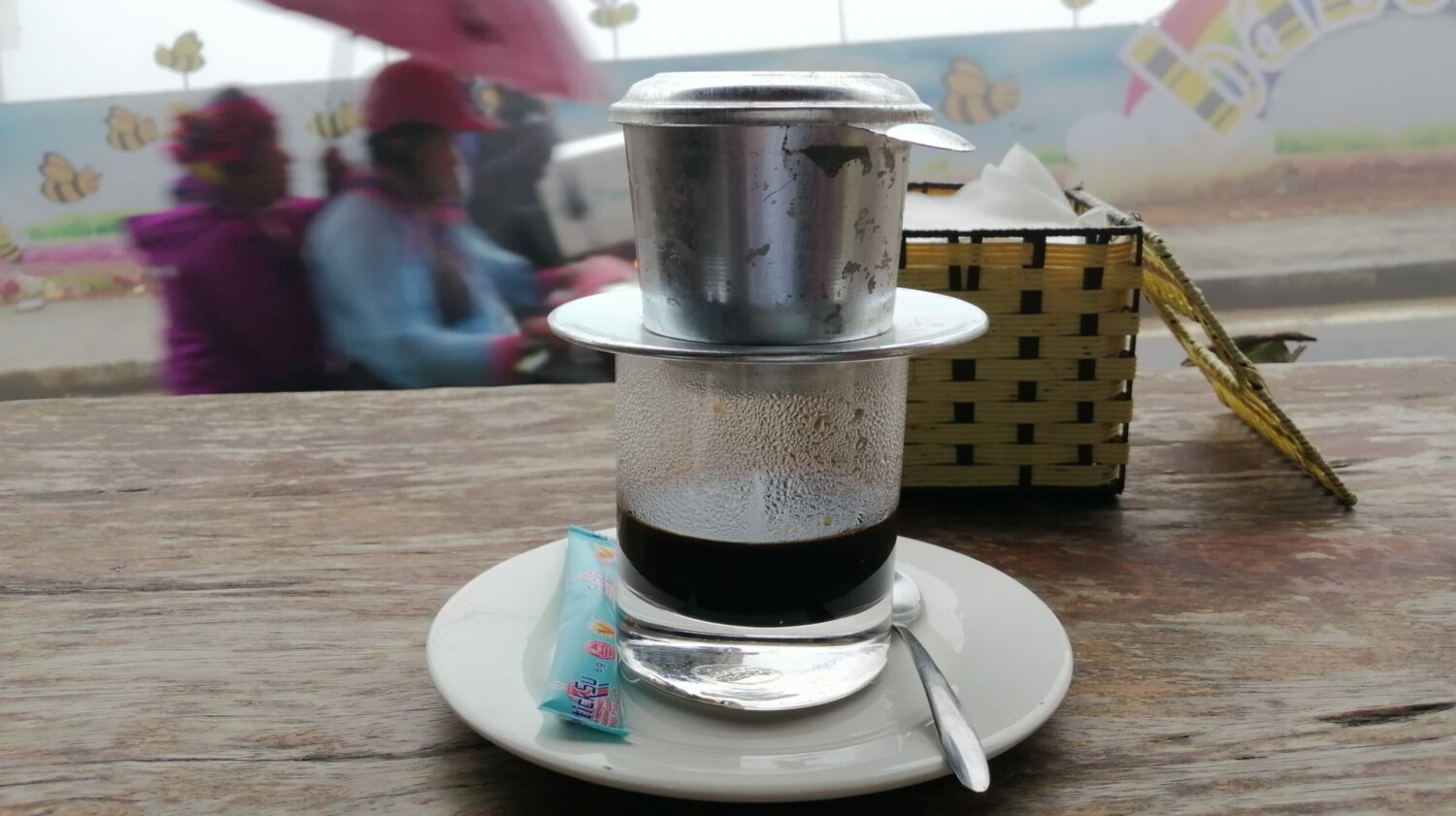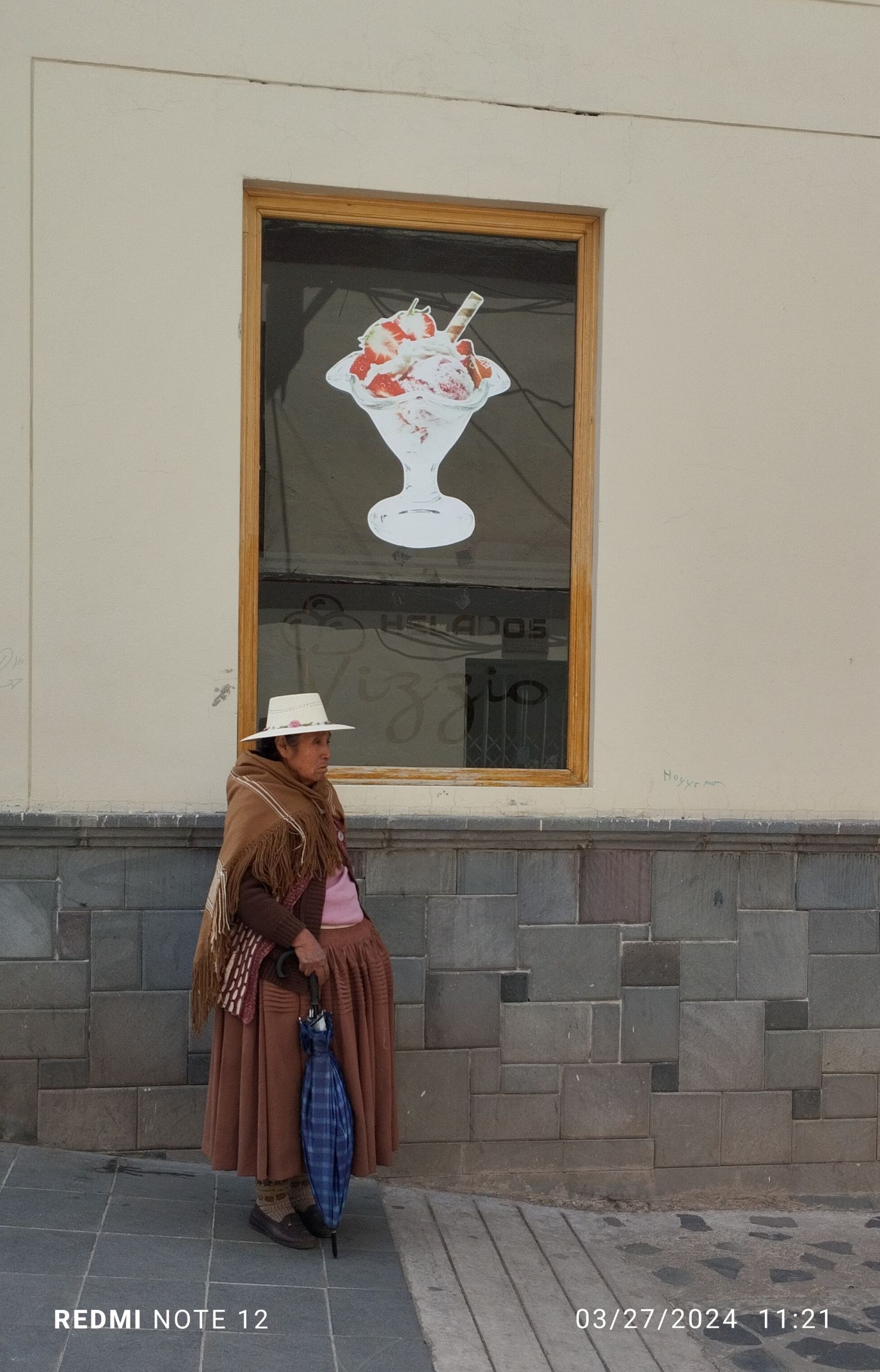It’s about four thirty AM when our bus rolled into the Puno bus stop, our Cruz Del Sur bus being as nice as first class of Korean Airlines. Puno, a small town on the edge of Peru, is a place I never heard about until a few days before, thanks to my adventurous colleagues. It’s a place I had no desire to visit. A place I didn’t even know was a place. But there I am at this bus station, trying to stay warm before dawn when my eyes spotted the egg-shaped woman on a blanket.
She is round, short, her waste wider than their hips, her ankles pouring out of ill-fitting shoes in thick wool socks. A colorful ruffly skirt around her waist adds to her girth, a mismatched sweater holds in her warmth. A Rapunzel-like braid. A face more masculine than feminine. Skin weathered like my dad’s old baseball mitt. She wrangles a young child, his face smudged with dirt, his small hand in his mouth. I try to guess her age. I try to imagine her story.
I go to my hotel. She sleeps on a damp floor.
I can sleep. The egg-shaped woman keeps me awake. It’s not because she was such a unique spectacle on this big blue marble, but that I am.
I’m the minority.
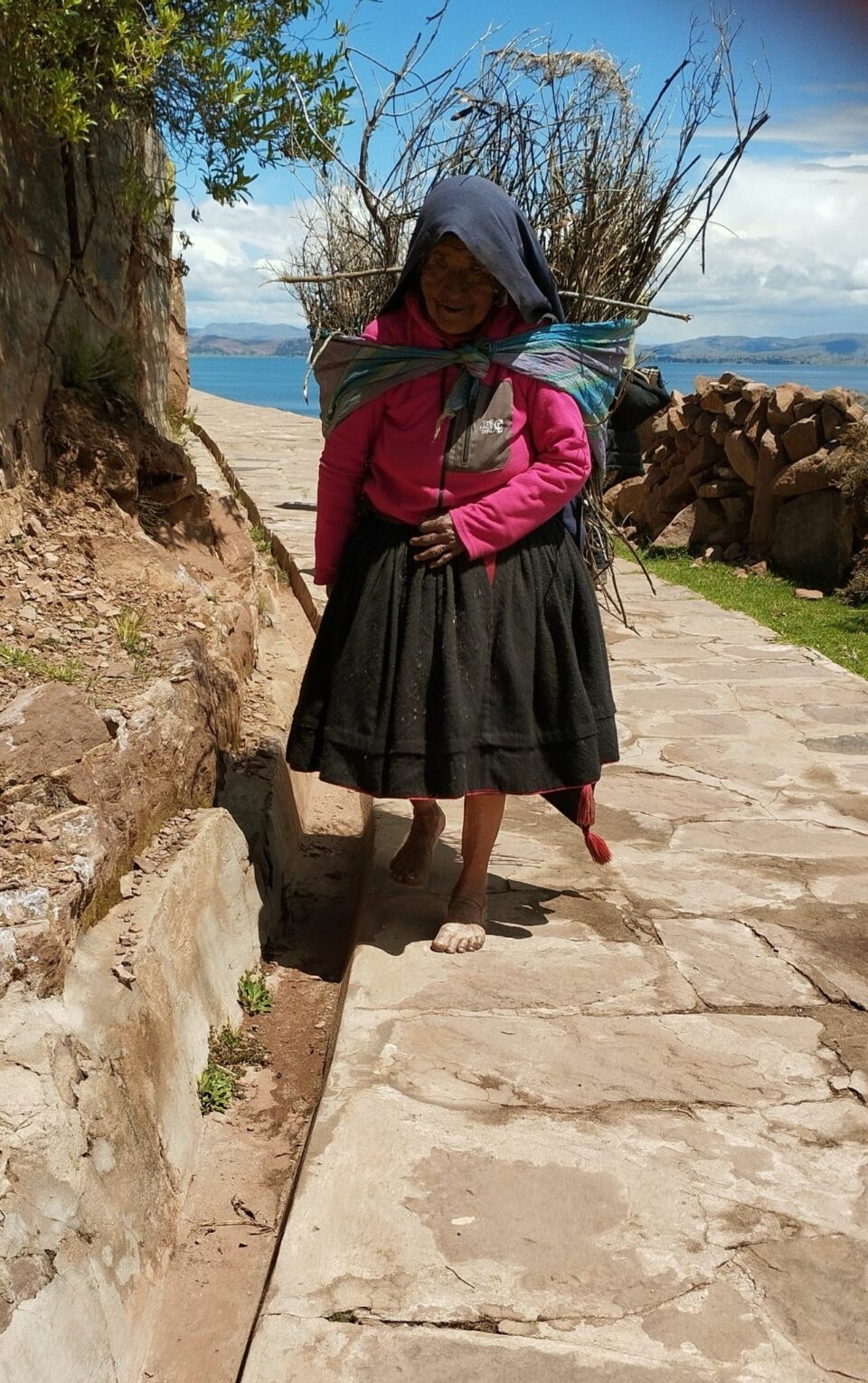
If you are among the those that have the luxury of time to read this post, don’t go to bed hungry, don’t hear bombs drop at night, and actually have time to complain about internet memes, you are part of that privileged minority, too.
A quick slap in the face: 47% of the world population lives below the US poverty line, another 14% are within five kilometers of a war zone. 23% percent are illiterate (that’s not including the morons who take part in man-on-street interviews by late night hosts), 26% lack fresh water, forty-six lack access to basic sanitation. By some weird act of fate, I’m not one of them.
I’m one of the elite who are bothered that I began a sentence with a number (a grammar taboo, according to MLA guidelines). I’m not trying to cross a border. I am not sleeping on a blanket in bus station or in a tent under a viaduct in Chicago. I’m part of the privileged few with Costo cards and the latest cell phones fueled by a fleck of cobalt mined by a child in Africa. I am part of the club that has no right to complain, but do, despising, judging and slamming the door on those in need.
We are the blessed minority, not the struggling majority.
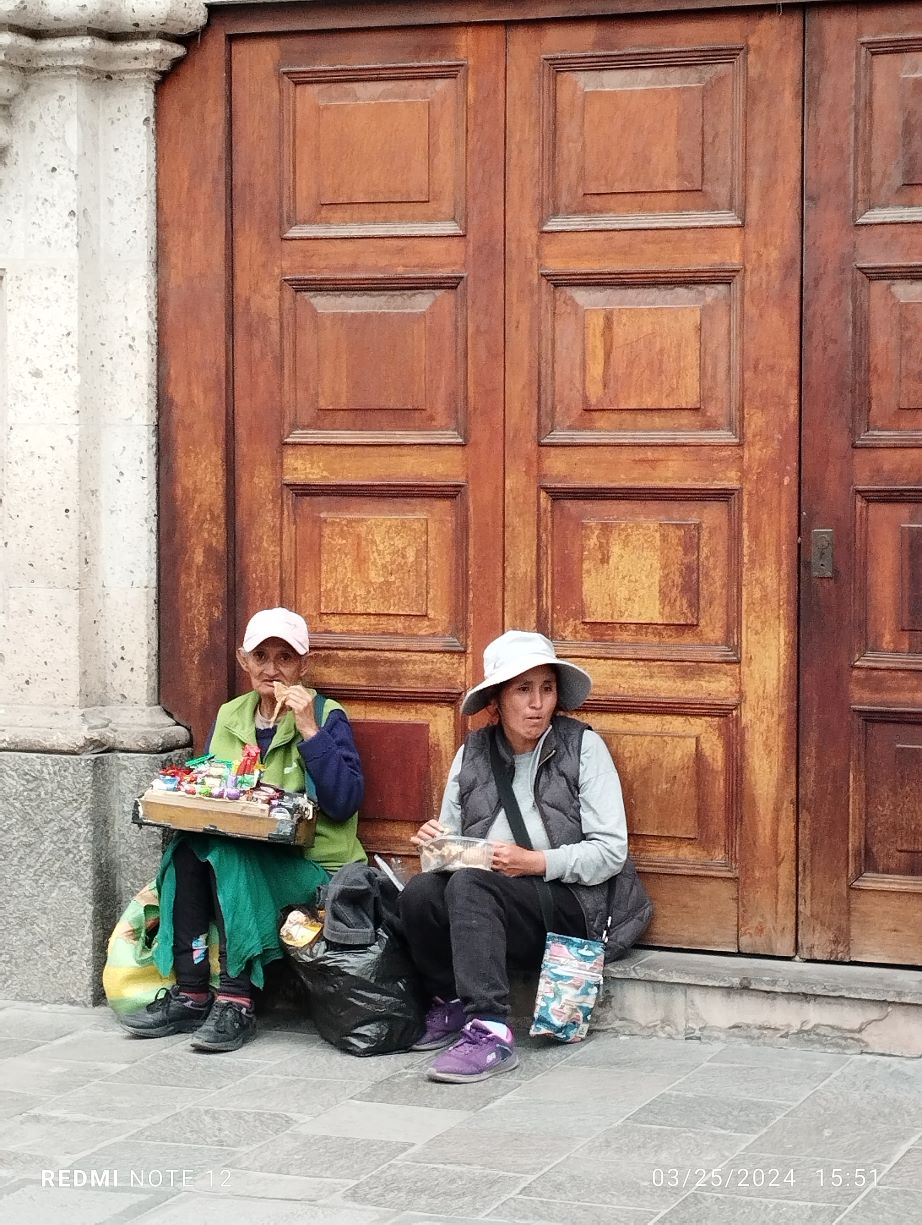
I take a tour of Lake Titicaca, which is fun to say, the pronunciation being worthy of a double detention. The first stop is a floating island. It sounds like a ride at Disneyworld. People live on these squishy islands, in an effort for cultural preservation, not tourist exploitation. The floating island, made from reeds, is about the size of a basketball court, musty smelling, smooshy court, bordered with leaning huts.
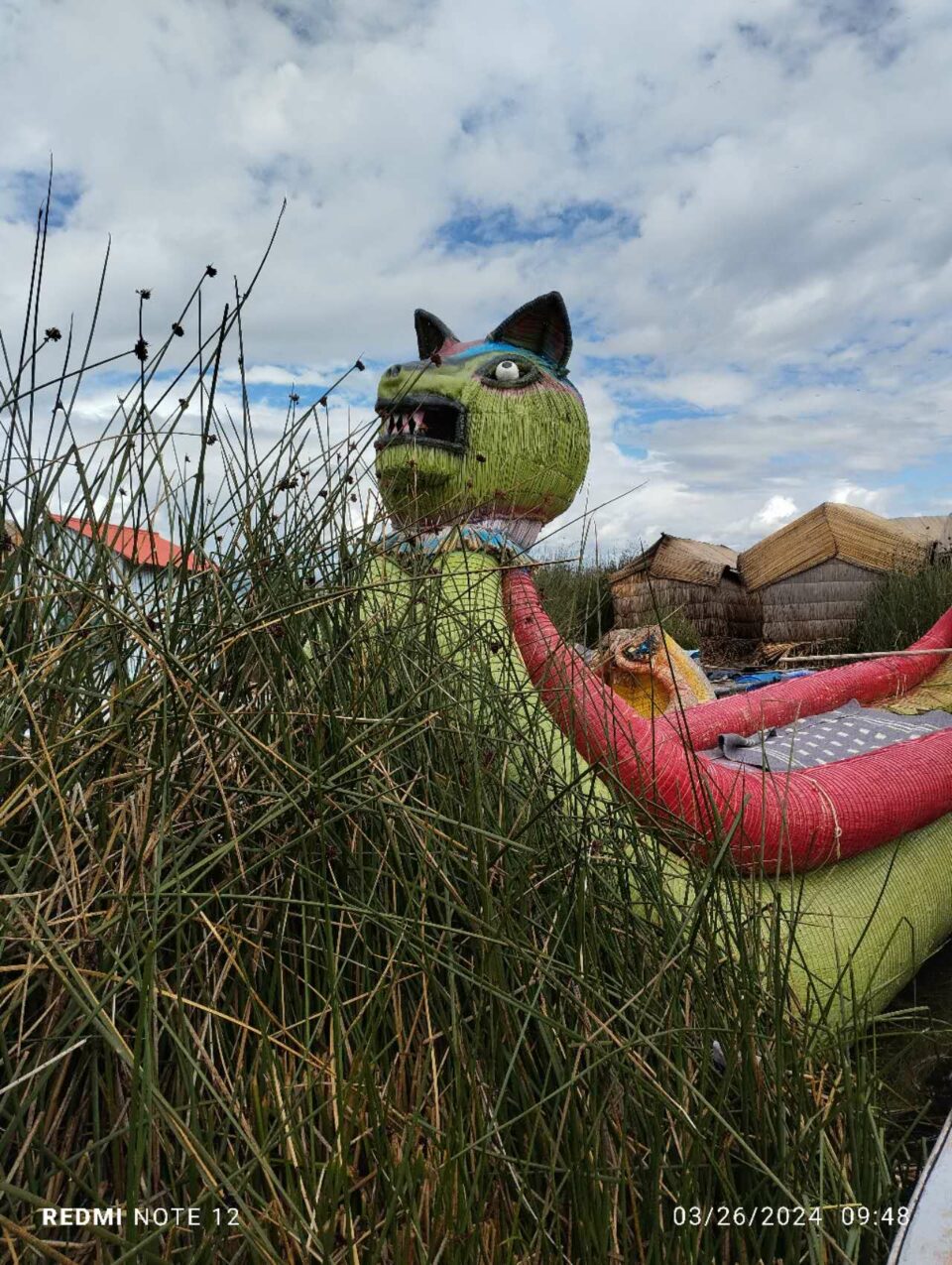
The tour guide gives a brief history of the island, how its inhabitant’s ancestors originally created to escape the Incas. A woman invites us inside her dark small hut, about the size of a storage closet. A reed-stuffed mattress. Clothes stuffed in the rafters. No TV. No Pottery Barn or Shabby Chic sofa. I feel shumbled, both ashamed and humbled. I don’t take a photo. She is young, egg shaped, and barefoot. Her face is etched on the inside of my eyelids. She holds out her hand.
For a moment, I forget that I’m of the minority, not her. I have a credit card. I have the right to vote. I do yoga. I write scribblings that others bother to read. I think of my years in China, when I was the big-nosed white woman on display, terrifying Chinese toddlers who thought I was a ghost, while village folks rummaged through my grocery cart wondering what I ate, enduring comments from blind masseuses about how I smelled like cheese.
I’m the minority.
I think of posts on FB about the immigration mess in America. The wall that divides us. The homeless under viaducts. The faces no one wants to photograph. Faces like Amish dolls, with no eyes, no mouth, no features. Just objects where we cast our blame. My mind flashes to the headache of getting government clearance to live in a foreign country. Documents apostilled, fingerprinting, and background checks. I think of those walking across Mexico as I write this, desperate for a drink of water, only to arrive to another nightmare.
We return to Puno. We stumble through a market and see egg-shaped women selling potatoes. Some varieties familiar, others white and dusty, reminiscent of Russian tea. It’s a chuño, a freeze-dried potato, a traditional ingredient in Quechua communities. The taste is supposedly pungent, not like Christmas cookies.
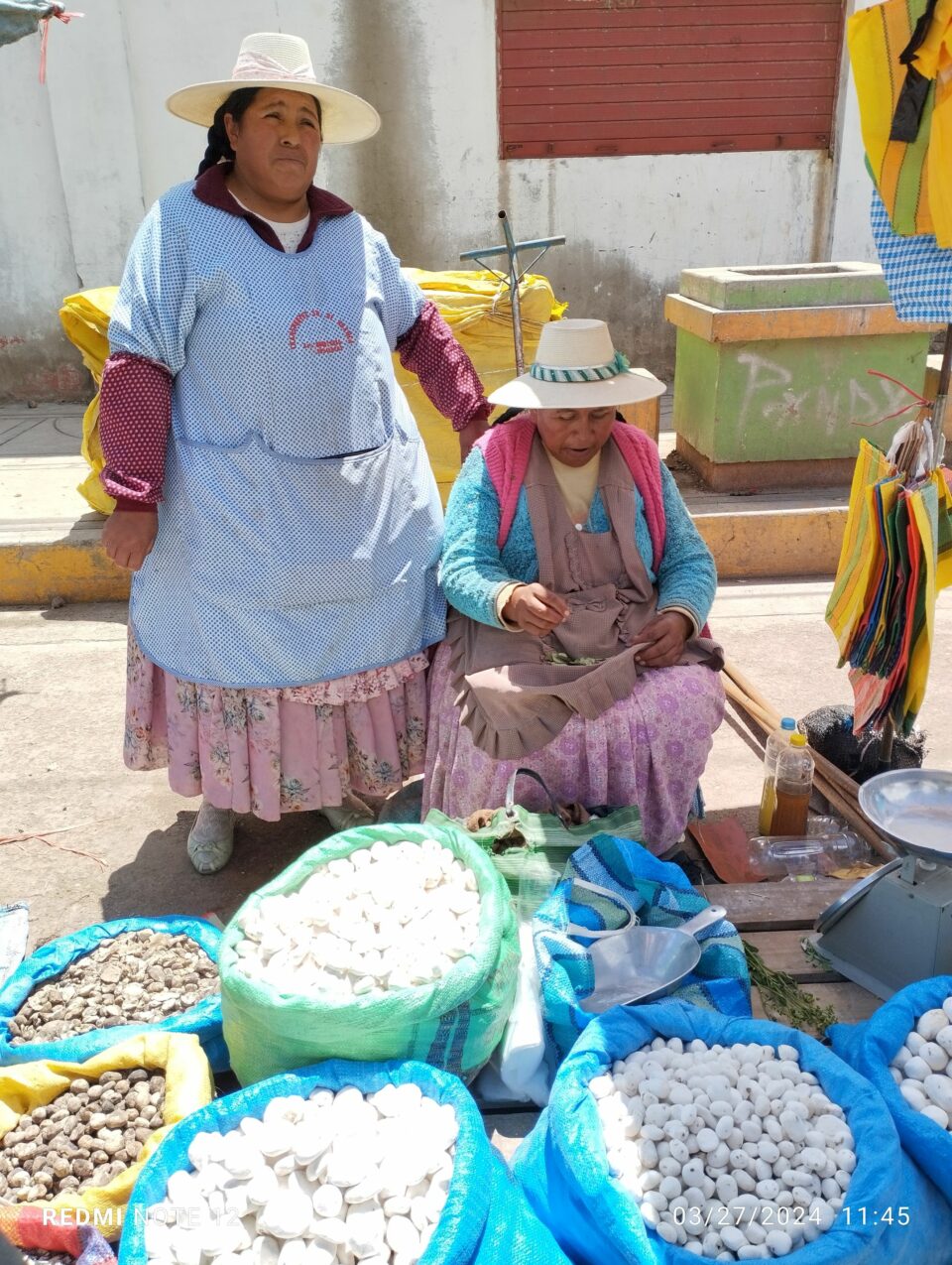
I go back to my warm hotel room and think of the woman on the floating island and her dark hut. Her handshake invades my dreams. It reaches to me when I’m trying to solve the New York Times Wordle. Her grip is fragile. I think about germs, her soiled blankets. I don’t think about how vulnerable she is to my wealth of disease. Polio, hepatitis, tetanus, measles, chicken pox, covid. And the real deadly ones. Bigotry. Prejudice.
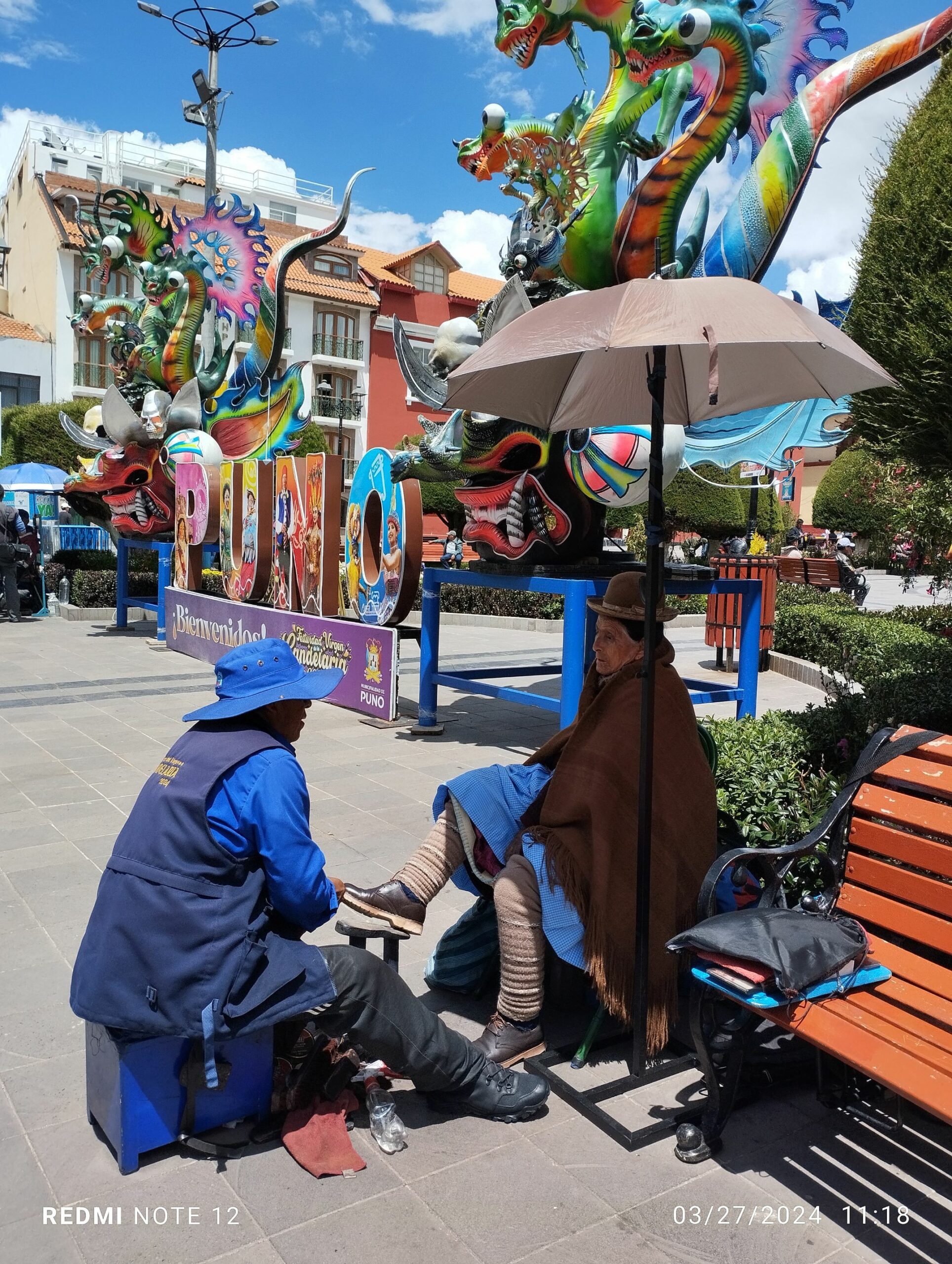
I get back to Lima. On Easter morning, I wander through Kennedy Park to visit my forty-two cats. I spot a petite platinum blonde, her short curly reminiscent of Marilyn Monroe, her petite figure balancing on clunky heels. A tattoo is etched across her lower back. I’ve seen her since the first day I arrived in Lima, chatting with the morning drunks, arguing with local vendors, being hassled by cops. I stop to ask her name. Olivia. She’s a mother of three. Two are in America. A third, seven years old somewhere in the city. I didn’t know I could have a child in my forties she says. Do I look like I’m fifty-one? No you don’t, I say. I tell Olivia how beautiful she is. She smiles. I say goodbye, knowing unlike the egg-shaped women selling potatoes and sleeping in bus stations, I will see Olivia again.
What a beautiful reminder to be kind.
